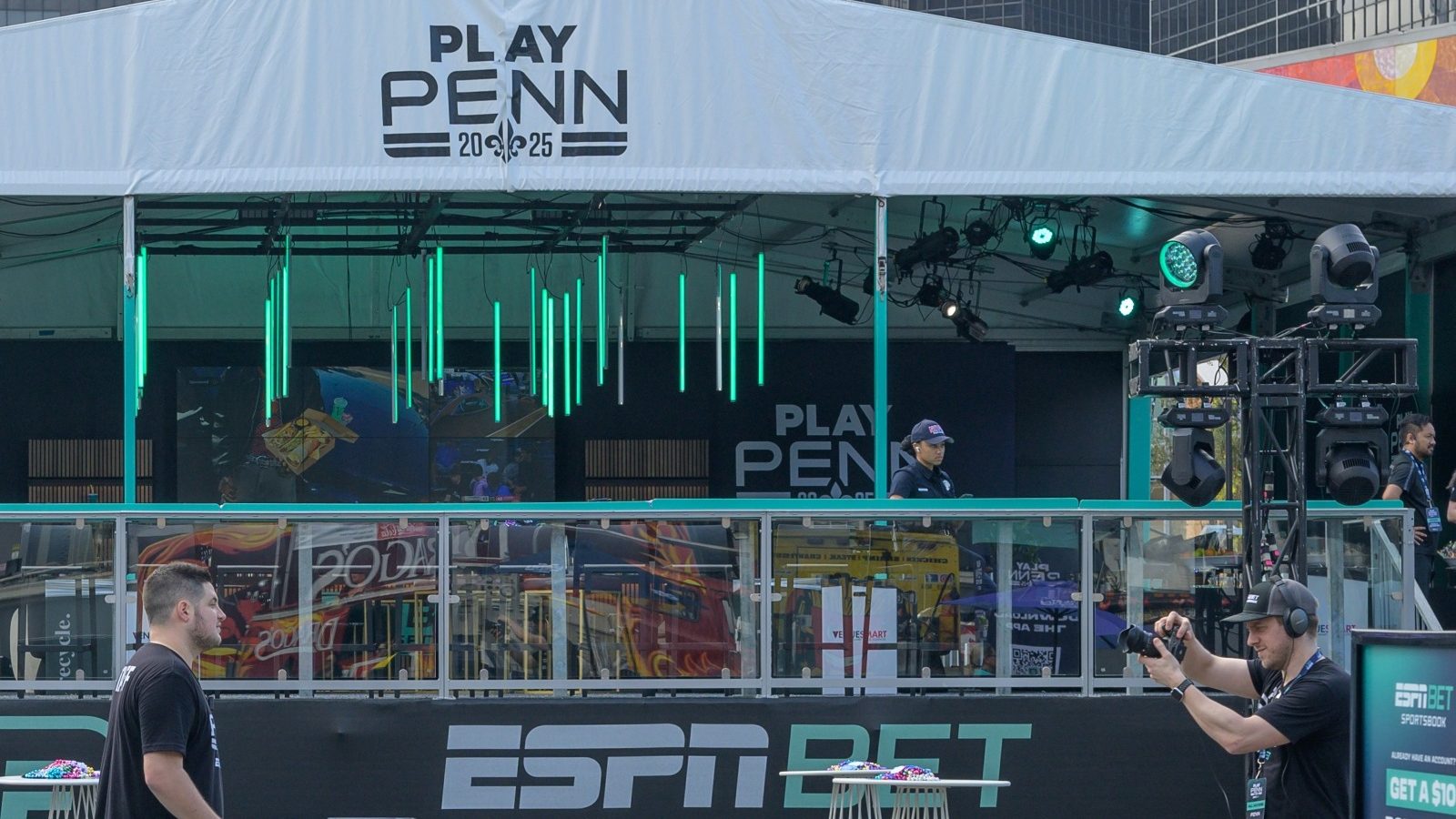Penn Entertainment may be “taking longer than expected” to get its digital businesses up and properly cross-promoting, a Susquehanna analyst wrote Friday, but the company’s “strategies to both use its digital channel to grow digital results and to source new customers to cross promote into its retail portfolio is taking hold.”
Writing that the retail casino business may be underrated and that the stock price may be “particularly sensitive” to positive changes in the digital product, analyst Joe Stauff rated the stock as positive and set a $28 price target after his group had an investor event with Penn CEO Jay Snowden. Penn stock was trading at about $19 Friday and Monday.
Penn has come under fire this year, particularly from activist investor HG Vora, for moving forward with what it calls an expensive, but as yet unsuccessful digital strategy. The company revealed losses on the digital side during earnings calls in May and August, but Snowden continued to espouse his faith in ESPN Bet.
After Penn ended a partnership with Barstool Sports in 2023, it committed $2 billion to partner with ESPN for ESPN Bet, which Snowden projected would ultimately gain 20% of market share by 2027. The platform currently has less than 5% market share across the U.S. Snowden in February addressed the idea that both ESPN and Penn have the right to dissolve their 10-year partnership as early as 2026, and that Penn could cut staff because it was “operating at scale.”
ESPN, ESPN Bet have more to offer
Since then, ESPN launched its ESPN Direct-to-Customer service, as well at other integrations to drive customers to the betting site and make the experience more seamless. There have been multiple ESPN Bet improvements, as well, since the last football season, including a new FanCenter and “Injury Insurance.”
But Stauff wrote that the platform is “at parity with competitors with significant ‘top-of-funnel’ growth after significant effort to drive ESPN media integrations before its streaming service launch (likely one of the biggest strategic initiatives at Disney in years). Early reads on trends in August/NFL week 1 suggest retention levels ‘significantly higher’ with both a higher quality customer (read: higher deposit and ave. wager) and where 70%+ of its new customers remain new PENN customers (sources are younger digitally native & inactives).”
In addition, he wrote, Penn is the only traditional brick-and-mortar casino company to so far have successfully used cross-promotion to drive customers from digital platforms to retail operations. Penn launched its Hollywood Casino digital platform in Pennsylvania last December, and it is now live in Michigan, New Jersey, Ontario, and West Virginia.
Penn plays to younger crowd
While Penn’s foray with ESPN has been the news for months, Stauff wrote that the company’s retail casinos are the real star, pointing specifically to the company’s latest project in Joliet, Illinois, which is an example of how “new younger customers in the digital channel will be offered a retail product that is appealing.”
The new casino, which opened last month, has a more modern vibe and features hip restaurants and bars, including an Italian offering by celebrity chef Giada De Laurentiis, and an ESPN Sportsbook with a 42-foot video wall. The casino also a packed calendar at its &Vine entertainment venue, in addition to 1,000 slot machines and more than 40 table games.
Susquehanna projects the Joliet venue could represent about a 40% return on investment before rent.
Considering the whole picture, Stauff wrote that with its revamped in-person venues, Penn has “consistently outperformed” against Caesars Entertainment by creating top-line, current venues and effectively using cross-promotion to get a younger crowd into casinos.
“While ESPN-Bet/Hollywood digital products are off to what seems like a solid start to the sports season, it seems to us that the positioning of its retail portfolio is very likely understated,” Stauff wrote.








